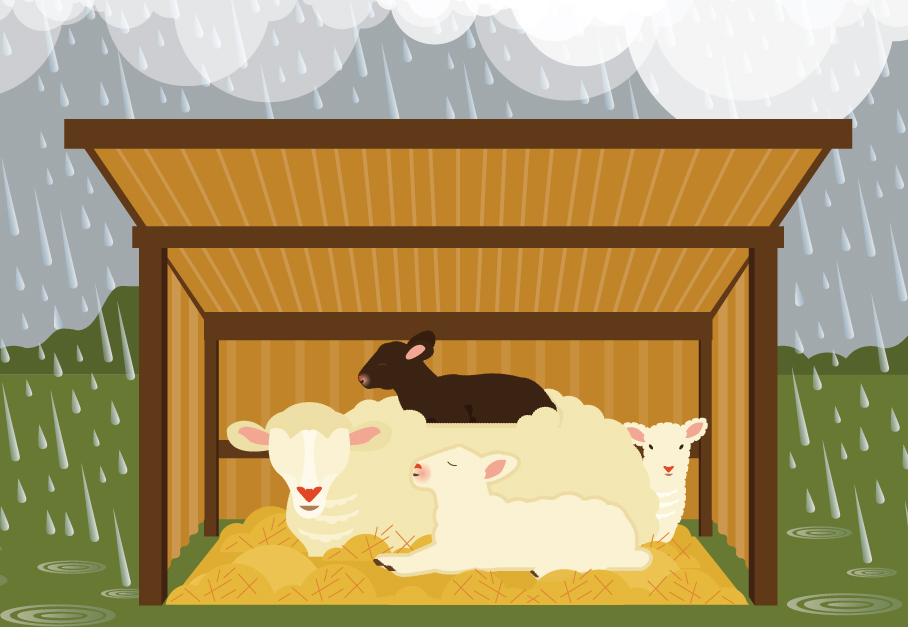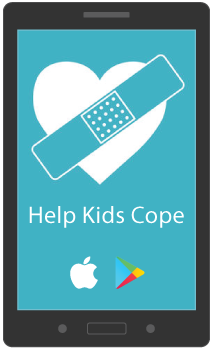×
- Services
- Resources
- Careers
- About Us
- Appointments
At our core we want to have certainty in our lives. When things are uncertain and feel beyond our control it can leave us with a sense of not feeling safe. This contributes to anxiety, worry and fear. This may also remind us of other times in our lives when we did not feel safe, and as a result we may feel more on edge, angry, helpless or sad.
It is important to remember we are all doing the best we can during these difficult times. Treat others with kindness and compassion, knowing they are doing the best they can. Treat yourself with kindness and compassion knowing you are also doing the best you can. It’s important to remember to take care of our mental health and wellness during these uncertain times.

Wildfires. Floods. Landslides. Tornadoes. Extreme Heat. Earthquakes.
IS YOUR FAMILY READY FOR THE NEXT DISASTER?
Be prepared and pack a bin or two with items you’ll need during an evacuation and personal mementos that can’t be replaced. Include important documents such as passports, birth certificates, insurance papers, family photos, videos and other keepsakes as well. The most devastating aspect of losing a home is losing the items that can’t be replaced, and by securing important documents and personal items in advance of an evacuation order it can help alleviate some of the anxiety you may be feeling during fire season.

With HELP KIDS COPE:
HELP KIDS COPE by UCLA is FREE from Google Play and iTunes and now available for Android and Apple devices.
For iPad users: tap on the ‘iPad Only’ drop-down menu and select ‘iPhone Only’ from the menu to view the app.
 Wildfires cause emotional distress as well as physical damage. People may fear that their loved ones will be killed or injured. Separation from family members can occur, with hours or days passing before being reunited. Neighborhoods and communities may be called on to evacuate on short notice, forcing people to make important decisions in minutes – whether to evacuate, where to go, when to leave, and what to bring with them (including pets). People may live in shelters for days, not knowing if their homes and businesses have been saved or lost. Routine is disrupted and one’s sense of security is undermined. Families and communities should not underestimate the accumulative effects of evacuation, displacement, relocation and rebuilding.
Wildfires cause emotional distress as well as physical damage. People may fear that their loved ones will be killed or injured. Separation from family members can occur, with hours or days passing before being reunited. Neighborhoods and communities may be called on to evacuate on short notice, forcing people to make important decisions in minutes – whether to evacuate, where to go, when to leave, and what to bring with them (including pets). People may live in shelters for days, not knowing if their homes and businesses have been saved or lost. Routine is disrupted and one’s sense of security is undermined. Families and communities should not underestimate the accumulative effects of evacuation, displacement, relocation and rebuilding.
In the aftermath & as the scope of the damage is known, families may learn of injuries to loved ones. The loss of homes, pets, livestock, and valuables, including sentimental items, will increase feelings of sadness and vulnerability. If a fire is found to have been set intentionally, people grapple with increased anger and blame. Like other traumatic events, wildfires will be particularly difficult for individuals with special needs.
Post-wildfire problems with housing, food, water, electricity, transportation, work, school, childcare, and daily routines can disrupt living for weeks or months. People suffer financial hardships when their homes, businesses or jobs are lost. Confusion can mount as they seek disaster assistance from local and federal agencies or their insurance companies. As a result, signs of stress may become evident even months after the fires.
Children’s reactions to the wildfires and their aftermath are strongly influenced by how their parents, teachers, and other caregivers cope during and after the events. They often turn to these adults for information, comfort and help. Below are common reactions parents may see in their children. These generally diminish with time, but knowing that these reactions are likely can help you be prepared to help your child.
 Floods are the most common natural weather event and are temporary conditions when an area is overcome by water or mudflow. Floods in our area can occur under many conditions including snowmelt, overflowing drainage systems and heavy rainfall.
Floods are the most common natural weather event and are temporary conditions when an area is overcome by water or mudflow. Floods in our area can occur under many conditions including snowmelt, overflowing drainage systems and heavy rainfall.
Areas recovering from wildfire are often prone to flash flooding and debris flows, especially near steep terrain. Rainfall that would normally be absorbed will run off extremely quickly after a wildfire as burned soil can be as water repellant as pavement and, as a result, much less rainfall is required to produce a flash flood.
Birth – 2 years: Infants may react to trauma as a result of their parents’ anxiety and/or reaction. This may include being irritable, crying more than usual or wanting to be cuddled.
Preschool: Children at this age do not have the capacity to fully understand but may understand enough to feel helpless and overwhelmed. They may feel fear and insecurity about being separated from caregivers.
Elementary School: These children have a better ability to understand and sometimes become intensely preoccupied with the details of the event and want to talk more about it. Other reactions may include sadness, generalized or specific fears about the event happening again.
Children’s responses to trauma vary according to their age. Generally, children respond by reverting to behavior typical of an earlier developmental stage. It is important to recognize some changes are considered ‘normal’ if they are brief (less than three weeks) in duration. If symptoms continue, you may consider seeking help.
Age |
Common Reactions |
Helpful Hints |
. |
| 1-4 years |
|
|
. |
| 5-11 years |
|
|
. |
| 12-17 years |
|
|
. |
 The outbreak of coronavirus disease 2019 (COVID-19) is very stressful and is leaving many of us feeling uncertain and out of control. This may also remind us of other times in our lives when we did not feel safe, and as a result we may feel more on edge, angry, helpless or sad.
The outbreak of coronavirus disease 2019 (COVID-19) is very stressful and is leaving many of us feeling uncertain and out of control. This may also remind us of other times in our lives when we did not feel safe, and as a result we may feel more on edge, angry, helpless or sad.
It is important to remember we are all doing the best we can during these difficult times. Treat others with kindness and compassion, knowing they are doing the best they can. Treat yourself with kindness and compassion knowing you are also doing the best you can. It’s important to remember to take care of our mental health and wellness during these uncertain times.
Our mental health experts have been hosting Facebook Live events to soothe and support you and your family while we get through this and seek happiness, health and relief from social isolation. Visit our Facebook page for our video library of past facebook live events.
MENTAL HEALTH CARE KIT of Self-Care Resources
Reactions during an infectious disease outbreak can include:
People with preexisting mental health conditions should continue with their treatment plans during an emergency and monitor for any new symptoms.
Coping with these feelings and getting help when you need it will help you, your family, and your community recover from a disaster. Connect with family, friends, and others in your community. Take care of yourself and each other, and know when and how to seek help.
Call your healthcare provider if stress reactions interfere with your daily activities for several days in a row.
Things you can do to support yourself:
Share the facts about COVID-19 and the actual risk to others. People who have returned from areas of ongoing spread more than 14 days ago and do not have symptoms of COVID-19 do not put others at risk.
What are quarantine and social distancing?
Sharing accurate information can help calm fears in others and allow you to connect with them.
Learn more about taking care of your emotional health.
Children react, in part, on what they see from the adults around them. When parents and caregivers deal with the COVID-19 calmly and confidently, they can provide the best support for their children. Parents can be more reassuring to others around them, especially children, if they are better prepared. Not all children respond to stress in the same way. Some common changes to watch for in children:
There are many things you can do to support your child:
Courtesy Centers for Disease Control and Prevention

Violence is all around these days – in the media, in our communities and even in our schools. Our kids are exposed to situations, images and stories that are unavoidable and can be very frightening. The days, weeks and months following can be very stressful.
Your children and family will recover over time, especially with the support of relatives, friends and the community. But families and kids may have had different experiences during and after the shooting or violence, including those who may have experienced physical injury, were involved in the police investigation, worried about the safety of family and friends, and/or lost love ones. How long it takes to recover will depend upon what happened to you and your family during and after the event. Over time, some will return to normal routines, while others may struggle. Children and teens react differently depending on age and prior experience. Expect that youth may respond in different ways and we supportive and understanding of different reactions even when you are having your own reactions and difficulties.
Children’s responses to trauma vary according to their age. Generally, children respond by reverting to behavior typical of an earlier developmental stage. It is important to recognize some changes are considered ‘normal’ if they are brief (less than three weeks) in duration. If symptoms continue, you may consider seeking help.
Age |
Common Reactions |
Helpful Hints |
. |
| 1-4 years |
|
|
. |
| 5-11 years |
|
|
. |
| 12-17 years |
|
|
. |
Mass violence incidents, where several people are injured and killed, affect everyone in the community. Coping with mass violence can be very stressful. Over time, most people begin to feel better and return to normal routines, but knowing about the impact of mass violence can help you take care of yourself and others. Here are some common reactions to mass violence:
Mass violence is shocking and can make you fear for your safety. If the people at the event or those who were killed were doing things that you often do, in places you might have been, it can contribute to your fear, anxiety, and feelings of not being safe. You may believe that feeling afraid is childish, but fear and not feeling safe are common reactions after mass violence. Know that people in the community, including first responders, school staff, parents, and other caring adults are working to improve your safety and the safety of your community. As a teen, you can have an important voice in these efforts, too. For example, you can advocate for measures that you believe will make you and your community safer, or lend your voice to existing groups that have similar goals.
After mass violence, many teens will experience some of these reactions even if they aren’t talking about them:
As a teen, you are becoming more independent and developing your own values and interests. After mass violence, you may find yourself worrying about your family in new ways, or your worries may have intensified. For example, you may suddenly be much more aware of the impact of these events on elderly relatives or younger siblings and be more protective or concerned for their well-being. If you sense that your parents or caregivers are very distressed about what happened, you might not talk to them about your own feelings because you do not want to further upset them. It can be very helpful to identify a trusted adult to talk to about your thoughts, feelings, and reactions related to the mass violence so that you are not alone with your experiences.
Teens face many challenges, like adjusting to middle or high school, meeting academic expectations, balancing athletics or other activities or job responsibilities, planning for college, dealing with peer pressure, or managing problems at home or in your personal life. You may think that your problems are small compared to mass violence. However, going through this experience can magnify the daily issues that you were already dealing with, and make them feel much worse than before. This may be especially true if you experienced a trauma prior to the mass violence, if you had depression or anxiety in the past, or if you are currently involved in counseling services.
As a teen, you may be learning more about yourself and what it means to identify with a sexual orientation, gender, religion, ethnicity, race, or political affiliation. If the mass violence targeted a group that you identify with, this may cause you to have especially strong emotions. You may feel a heightened level of threat, fear, or lack of safety. This also may in-crease your sense of feeling isolated or cut off from your peers, family, or wider community. In many cases, communities respond to mass violence by coming together to support those involved and who died, as well as each other. Hopefully this will provide you with a sense of support, acceptance, and safety as you explore your identity.
It is difficult to understand why a person would intentionally hurt and kill others. This can challenge your trust in other people, your religious beliefs, or the ways you think about or view the world. Searching for meaning in the face of hate is extremely challenging. Reading and talking to friends, family members, teachers, and faith leaders can help you formulate your own ideas about why terrible things happen.
After mass violence, media and social media coverage is constant. You may be tempted to stay glued to your phone, but this can cause even more distress. Try to disconnect from the news and social media at least for several hours every day. If watching TV or being on your phone helps you to cope, turn on a movie, watch a channel that doesn’t have news alerts, or play a game.
This is a good time to establish a daily schedule that includes eating regular, healthy meals and snacks, exercising, and trying to get as close to a full night of sleep as possible. Turning off electronics at night will help you accomplish this.
It’s okay to disengage from tragedy. Give yourself permission to have fun. Consider doing something you really enjoy every day such as going for a walk, writing/journaling, creating art, listening to music, being with friends, spending time with your pets, or engaging in other relaxing activities.
Spend time with your family, friends, and other people who make you feel more relaxed. Don’t cut yourself off from loved ones. Find a way to help others through volunteering, tutoring, or other community activities. Finding ways to connect with others often leads to feeling better. If you are worried about how a peer is coping, check in with them, and let a trusted adult know.
If you want to talk to someone, ask your parent or other caring adult, school counselor or nurse, or primary care provider for help. Your community may have drop-in centers specifically for this purpose. Most of these issues resolve with time, but if they continue, don’t hesitate to seek additional or specialized counseling services.
This information courtesy of the National Child Traumatic Stress Network, www.NCTSN.org. The project was funded by the Substance Abuse and Mental Health Services Administration (SAMHSA),
US Department of Health and Human Services (HHS). The views, policies, and opinions expressed are those of the authors and do not necessarily reflect those of SAMHSA or HHS.
Recovering from the emotional effects of an event can take a long time but you can take steps to begin the healing.
 The Effects of Disaster Response
The Effects of Disaster ResponseMany responders work long hours and days at a time, overriding signs of stress and fatigue and finding themselves in the ‘fight’ response for the victims (think fight/flight/freeze/faint). Many deny that they themselves need rest or recovery time. This is untrue, we all are human.
Following major traumatic events, disaster responders have found themselves reacting in many of the same ways as the primary survivors. Some of the subsequent problems they have experienced include increased alcohol and drug use, increased sick time, changes in profession, burn out or increased domestic violence.
Managing stress is an art form, especially for disaster response work. You must actively implement and practice those activities that help YOU. Some Tips for Managing Stress:
It’s extremely important that you care for yourself. Should you find yourself recognizing any of the following reactions in yourself or others, take action to support self-care and recovery.
If any of the previous signs are experienced, it’s time to take action. Get yourself out of there. Someone else can do the job you are doing.